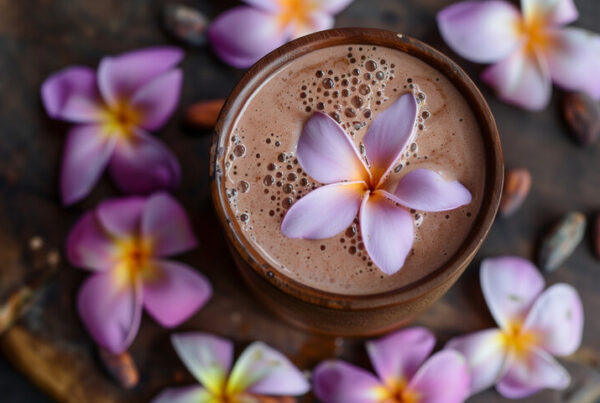For centuries, cacao has been more than just a plant; it has been a sacred symbol, a source of spiritual connection, and a key element in the rituals of indigenous cultures across Mesoamerica. From the ancient Maya and Aztec civilizations to the present-day descendants who still honor these traditions, cacao has played a pivotal role in connecting people to the divine, to the earth, and to one another.
Cacao in Indigenous Spiritual Practices
The reverence for cacao in indigenous cultures can be traced back thousands of years. The Maya, for instance, considered cacao to be a gift from the gods, often referring to it as “food of the gods.” It was used in a variety of sacred rituals, including offerings to deities, marriage ceremonies, and rites of passage. The Aztecs also held cacao in high regard, using it as a currency and a means to connect with the spiritual realm during rituals.
Cacao was not just consumed for its physical nourishment; it was believed to open the heart and mind, allowing individuals to commune with the divine and access higher states of consciousness. The bitter taste of pure cacao was seen as a reminder of life’s dualities—the balance between pleasure and pain, light and dark, life and death.
Lessons from Indigenous Wisdom
As we look to the past, there are several key lessons that modern society can learn from the way indigenous cultures have used cacao:
- Reverence for Nature:
Indigenous cultures have always maintained a deep respect for nature, viewing the earth as a living entity that provides for all its inhabitants. Cacao ceremonies were, and still are, a way to honor this relationship, acknowledging the earth’s generosity and expressing gratitude for its gifts. Today, as we face environmental challenges, this reverence for nature is a lesson we must take to heart, reminding us to treat the earth with the same respect and care.
2. Connection to the Divine:
Cacao has been a powerful tool for spiritual connection, used to bridge the gap between the physical and spiritual worlds. Indigenous traditions teach us that spirituality is not a separate part of life but is woven into every aspect of existence. Modern cacao ceremonies can draw on this wisdom, using cacao as a means to connect more deeply with ourselves, each other, and the divine.
3. Community and Sharing:
Cacao ceremonies in indigenous cultures were often communal events, bringing people together to share in the experience of the sacred. The act of sharing cacao was a way to strengthen bonds, foster unity, and create a sense of belonging. In today’s fast-paced, individualistic world, the importance of community and shared experiences is a lesson we cannot afford to overlook.
4. Balance and Harmony:
The dualities represented by cacao—bitter and sweet, dark and light—serve as a reminder of the importance of balance and harmony in life. Indigenous wisdom teaches us that embracing both sides of life’s experiences is essential for personal and communal well-being. In our modern practices, we can integrate this understanding, using cacao to help us find balance within ourselves and in our relationships with others.
5. Respectfully Integrating Indigenous Traditions
As we seek to incorporate these ancient practices into contemporary cacao ceremonies, it is crucial to do so with respect and mindfulness. Here are some guidelines to consider:
- Educate Yourself:
Before incorporating any indigenous practices into your cacao ceremonies, take the time to educate yourself about the culture, history, and significance of these traditions. Understand the context in which they were developed and the meaning they hold for the communities that practice them.
- Seek Permission and Guidance:
If possible, seek permission from and collaborate with indigenous elders or practitioners. Their guidance can help ensure that the traditions are honored correctly and that the practices are not appropriated or misrepresented.
- Give Back:
Consider how you can support the indigenous communities whose wisdom and traditions you are drawing from. This could be through financial contributions, supporting fair trade practices, or raising awareness about the challenges these communities face.
- Practice Humility and Gratitude:
Approach cacao ceremonies with humility and gratitude, recognizing that you are participating in a tradition that has been passed down through generations. Express your appreciation for the wisdom and teachings that have been shared with you.
Honoring the Legacy of Cacao
Cacao’s role in indigenous wisdom is a testament to the deep spiritual connection that these cultures have with the earth and the divine. As we incorporate cacao into our modern practices, we have the opportunity to learn from these ancient traditions and apply their lessons to our lives.
By honoring the legacy of cacao and respecting the wisdom of the ancestors, we can create ceremonies that are not only meaningful and transformative but also rooted in a deep sense of reverence, connection, and community.


